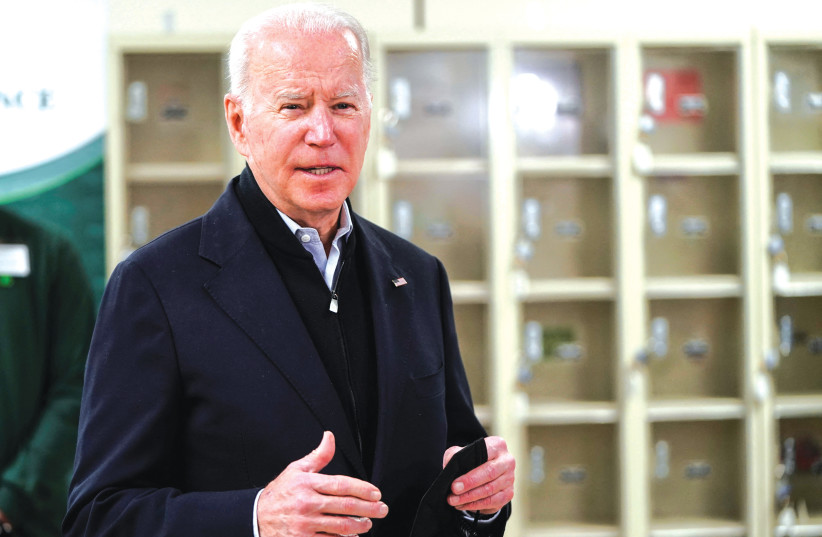Rabbi Cytron-Walker from Colleyville’s Congregation Beth Israel said that active shooter training helped save his life. The rabbi, spotting an opportunity, heroically threw a chair at the attacker to enable him and his congregants to escape. The hostages’ use of de-escalation skills, and “run, hide, fight” principles, proves the importance of such training.
However, more of an emphasis needs to be placed on another key lesson from this incident: Entry.
Malik Akram was not an active shooter, which law enforcement describes as an individual actively engaged in killing or attempting to kill people in a populated area. Akram apparently sought the release of a terrorist and his antisemitic worldview allegedly led him to believe that taking Jewish hostages would enable him to do it. If his primary aim had been to harm as many congregants as possible – as we have seen in previous attacks – we would likely not be celebrating the current outcome.
Prior to Colleyville, we saw four recent terrorist attacks on Jewish targets in the United States. This includes deadly assaults on synagogues in Pittsburgh and Poway, a kosher supermarket in Jersey City and a rabbi’s house in Monsey.
Although we are still learning more about what transpired in Colleyville as the investigation is underway, the stark reality is that all recent deadly attacks on Jewish institutions in the United States share one similar common denominator: The ease of which the perpetrators were able to enter their desired target. In some cases, there was nothing preventing them from simply walking through the front door and starting their murdering spree.

We know intimately from our counterparts in diaspora communities across the world – most notably in Europe and South America – that we can do much more to prevent such attacks against our communities. In the early 2000s, when European Jewry was experiencing a sharp increase in antisemitic attacks, a significant volume of people stepped up to the plate to get trained and volunteer to protect their own communities, and they still remain robustly involved in the protection of their institutions today.
This is a sobering statement but it needs to be heard and it needs to be discussed with increased vehemence. American Jews need to take these cues from their Jewish brothers and sisters overseas and assume a greater responsibility for our safety.
The volunteer security model, which has already been mainstream outside the United States for decades, has prevented dozens of attacks and serious incidents by detecting, deterring and disrupting threats early on. In 2019, an ISIS-affiliated terrorist on his way to attack a synagogue in Belgium during Shavuot, dressed as an observant Jew, was identified as suspicious by trained volunteers and delayed until law enforcement ultimately arrested him.
In 2020, in Germany an individual on his way to attack Jewish students at a Sukkot event was identified as suspicious by trained volunteers who evacuated most congregants to safety. In 2021, an individual was waiting to attack a French Jewish day school when trained parents spotted the individual and used their volunteer security training to prevent him from entering.
The effectiveness of the volunteer security model is not exclusive to Europe. We have a clear example from New York City. A perpetrator vandalized several Jewish institutions in the Riverdale neighborhood in the borough of the Bronx. Trained Community Security Service (CSS) volunteers subsequently identified the offender, helping to provide key information to the New York police department that ultimately led to an arrest.
In all of these examples, the volunteer security model enabled trained community members to recognize suspicious activity and prevent or stop attacks. We need to amplify these lessons. As CSS national director and CEO Evan Bernstein emphatically wrote in his open letter to the Jewish community just before New Year, “when there is an across the board Jewish communal understanding that security is everyone’s responsibility, together with a willingness to put in place basic measures and commitment to becoming trained, we will be in a much safer place.”
The American Jewish community cannot lower the alert level now. The threat against our communities is not going away. We need to take more ownership over our collective security and strive for a multi-layered approach that involves using federal resources to harden our institutions, active shooter training, and engaging law enforcement and private security together with trained security volunteers. Our security cannot be polarized, it must include all components. If not, we are not putting the community in the best position to mitigate attacks.
Rabbi Cytron-Walker took heroic action and threw a chair at the hostage-taker. We do not have to wait until the next crisis to take action, we can take action now by getting involved and laying the groundwork for a much-needed cultural shift on our protection.
The writer is the deputy national director and chief operating officer of the Community Security Service (CSS). He previously worked for the UN Security Council Counter-Terrorism Committee Executive Directorate (CTED), the Anti-Defamation League (ADL) and the official security organization of the Jewish community in the Netherlands.
